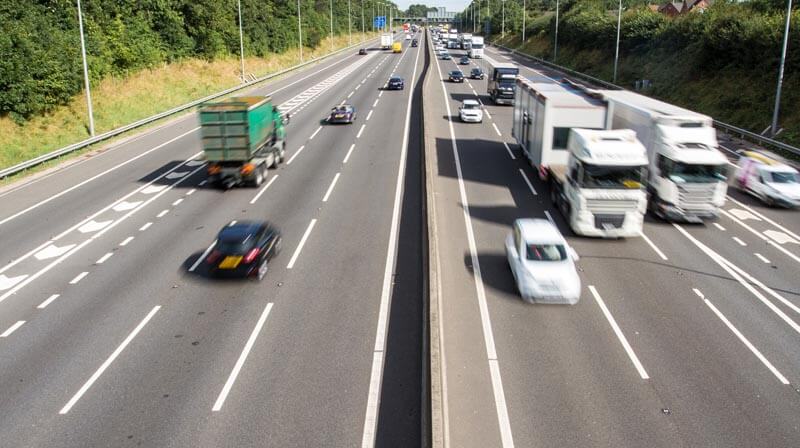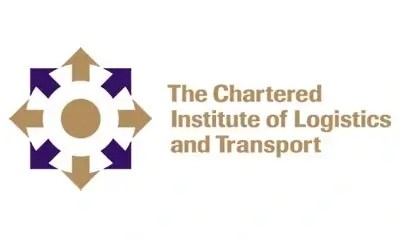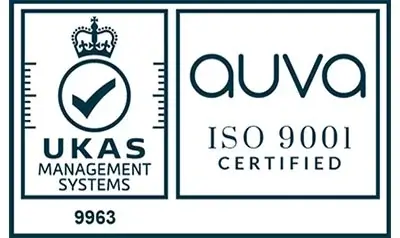

National Highways To Crack Down on Lane Abusers – Little Changes Campaign
A Campaign launched by National Highways "Little Changes" is aimed at lane abusers, and marks a significant stride towards enhancing road safety and facilitating smoother traffic flow on England’s motorways and major A roads.
With a sizable portion of motorists admitting to engaging in behaviours such as middle lane hogging and tailgating, the initiative not only shines a light on these detrimental practices but also sets the stage for a broader discussion on the implications for road safety and driver conduct.
As the campaign unfolds, one must consider the potential outcomes and broader impacts of such enforcement measures on driving culture and overall road etiquette.
Key Takeaways
Campaign Overview
In response to the concerning statistics that reveal one in three drivers admit to middle lane hogging, and one in four confess to tailgating on the nation’s fastest roads, National Highways has initiated a targeted campaign aimed at curbing these dangerous driving behaviours.
This strategic initiative seeks to address the pivotal role that lane discipline and following distance play in maintaining road safety. By leveraging the data indicating a significant portion of motorists engage in these risky practices, the campaign is designed to foster a behavioural shift among drivers.
The effort underscores the critical nature of adherence to lane discipline and safe following distances as fundamental to preventing road incidents. Through this campaign, National Highways aims to cultivate a driving culture that prioritises safety and courtesy on major roadways.
Little Changes Campaign - Middle Lane Hogging
Survey Findings
Recent survey results highlight that 34% of respondents observed middle lane hogging on their latest journeys, reflecting a persistent issue on England’s roads. The data underscores the importance of addressing this behaviour to improve road safety and efficiency.
To understand the extent of the problem, consider these key findings:
These statistics highlight the urgent need for targeted interventions to curb dangerous driving habits and promote safer road use practices.
Enforcement and Penalties
Understanding the significant safety concerns highlighted by recent survey findings, the enforcement and penalties for lane hogging and tailgating are designed to address these behaviours directly. The adoption of a data-driven approach towards enforcing road laws is pivotal for ensuring the safety and efficiency of national highways.
The penalties associated with these offences reflect the seriousness of their impact on road safety.
| Offense | Penalty Fine | Penalty Points |
|---|---|---|
| Lane Hogging | £100 | 3 |
| Tailgating | £100 | 3 |
| Repeated Offense | Increased Fines | Additional Points |
| Failure to Pay | Legal Action |
-
This table exemplifies the structured approach towards curbing hazardous driving behaviours, indicating a clear pathway towards enhancing road safety through accountability and penal measures.
Road Safety Concerns
Middle lane hogging and tailgating significantly increase the risk of collisions on national highways, posing serious safety concerns for all road users. These behaviours disrupt the orderly flow of traffic and can lead to dangerous situations that compromise road safety.
A data-driven analysis reveals several key points regarding these concerns:
- Collision Risk: Incidents of middle lane hogging and tailgating are directly linked to an increased risk of rear-end collisions, which are among the most common types of accidents on highways.
- Driver Behaviour: Surveys indicate that a significant portion of drivers engage in these risky behaviours, with nearly one in three admitting to lane hogging and one in four to tailgating.
- Public Perception: A majority of drivers recognise the danger associated with these practices, with 73% believing tailgating could cause an accident.
- Safety Initiatives: The launch of national campaigns targeting these behaviours aims to educate drivers about the risks and encourage safer driving practices to protect all road users.
Little Changes Campaign - Tailgating HGV
Driving Guidelines
Acknowledging the significant risks associated with middle lane hogging and tailgating, it becomes imperative to outline specific driving guidelines aimed at mitigating these behaviours on national highways.
Data from National Highways underscores the prevalence of such dangerous practices, with a considerable fraction of drivers admitting to engaging in them.
As a response, the recommended guidelines emphasise the use of the left-hand lane for general travel, reserving the middle and right lanes for overtaking or when the left lane is not feasible. Additionally, maintaining a minimum two-second gap between vehicles—doubled during adverse weather conditions—is advocated.
These measures, rooted in empirical evidence, aim to improve road safety by reducing the occurrences of frustration, anxiety, and potential accidents attributed to lane hogging and tailgating.
Public Opinion
Given the substantial data from the recent survey, public opinion on lane hogging and tailgating reveals a growing concern among drivers about road safety and the need for behavioural change. A significant proportion, nearly one-third, of respondents admit to engaging in middle lane hogging, while one in four has been guilty of tailgating on the nation’s fastest roads.
This self-awareness reflects a broader acknowledgment of the issues, with two-thirds of adults in England identifying tailgating as a serious problem. Additionally, the survey highlights a common belief among drivers that these behaviours significantly increase the risk of accidents, with 73% and 75% respectively associating tailgating and close following with potential collisions.
This data-driven insight outlines a critical public consensus on the urgency of addressing these dangerous driving habits to improve road safety.
Future Initiatives
Building on the insights garnered from recent surveys on road safety concerns, the next phase involves outlining strategic future initiatives aimed at mitigating the risks associated with lane hogging and tailgating.
- Increased Surveillance: Implementation of advanced monitoring systems on major highways to identify and penalise lane hoggers and tailgaters more effectively.
- Public Awareness Campaigns: Launching targeted educational campaigns to inform drivers about the dangers of lane hogging and tailgating, emphasising the potential consequences and promoting safer driving practices.
- Enhanced Driver Training: Incorporating specific modules on lane discipline and safe following distances into driver education programs to instil these critical habits in new drivers.
- Legislative Review: Evaluating and proposing adjustments to existing traffic laws to ensure they adequately deter lane hogging and tailgating behaviours, potentially including increased penalties for offenders.
Final Thoughts
The Little Changes campaign, initiated by National Highways, hopefully represents a big step towards mitigating the pervasive issues of middle lane hogging and tailgating on England’s roads.
Through a combination of survey data revealing the extent of these problems, the implementation of targeted enforcement measures, and the promotion of safer driving practices, the initiative aims to foster a more considerate driving culture.
The anticipated outcome is a significant reduction in congestion and accidents, underscoring the importance of minor behavioural modifications for achieving substantial improvements in road safety.



